The state decided to settle the lawsuit, rather than go to trial. The result was a two-part consent decree that detailed rights of persons with developmental disabilities at Pineland and in the community.
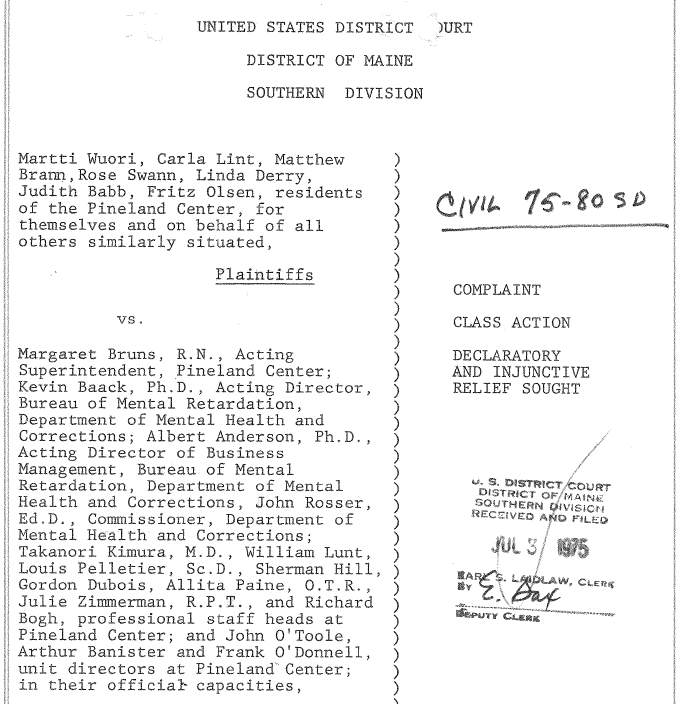
Pine Tree Legal Assistance, the first organization in Maine to provide free legal assistance to those in poverty, filed in federal district court in Maine on July 3, 1975 the lawsuit Wuori v. Bruns, alleging that the six defendants named in the case, and the "class" – all other residents and future residents – were not getting "training and education which would enable them so far as possible to lead normal lives."
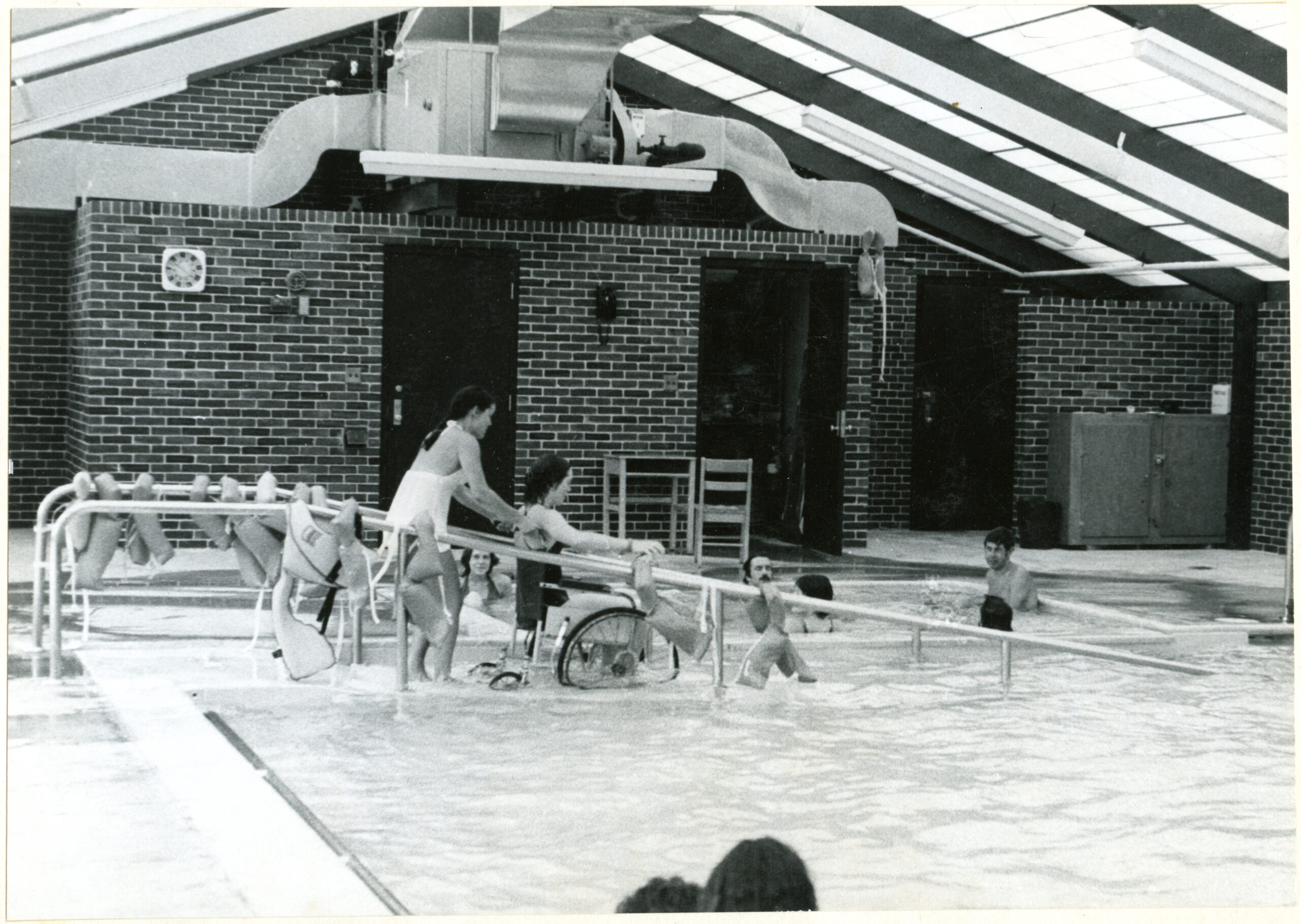
Change and reform were in the air at Pineland, but despite some new ideas and improvements, problems continued.
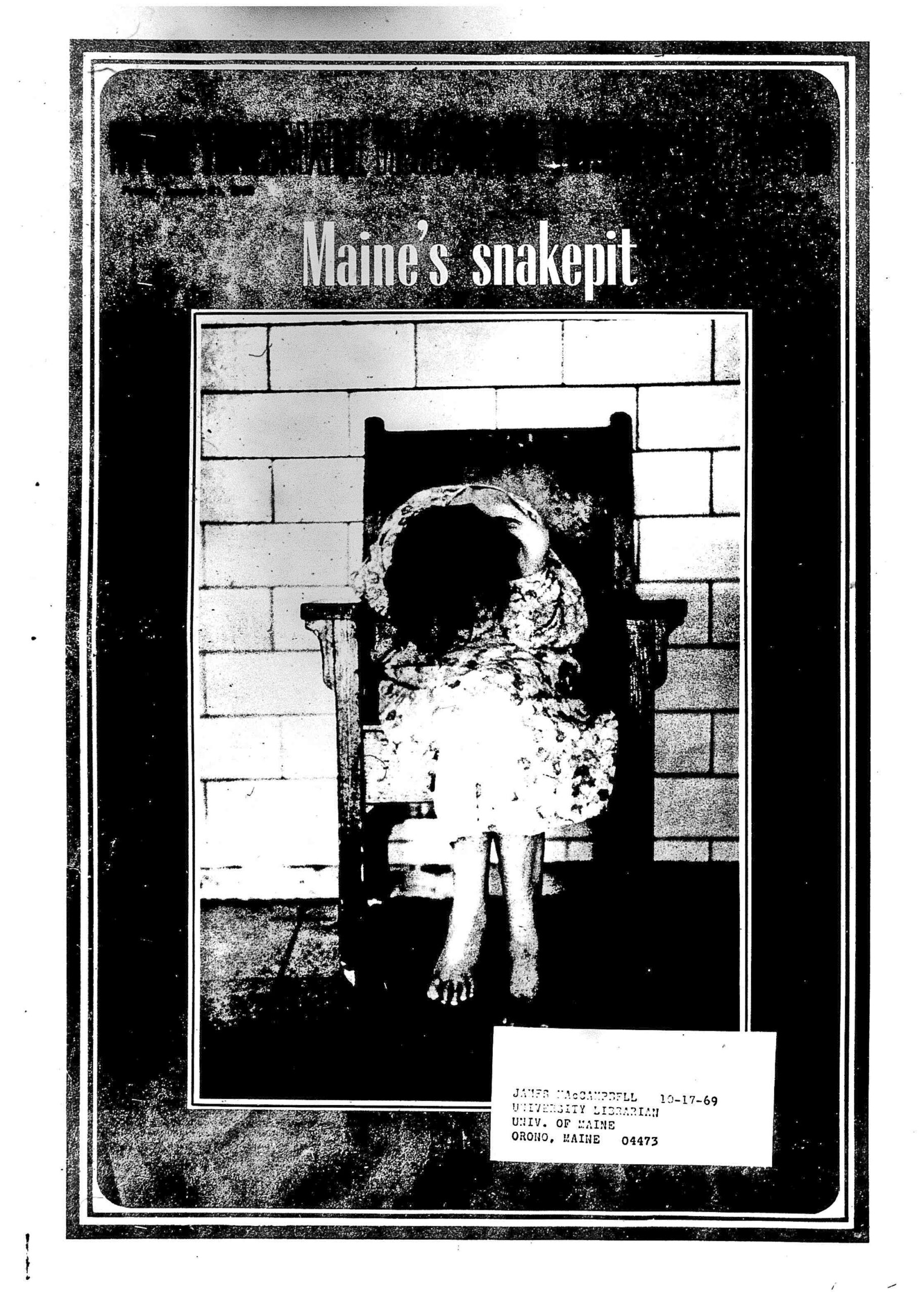
A Maine Times exposé in 1969 revealed overcrowding, residents with inadequate clothing, staff shortages, and deteriorating facilities. Another exposé, in The Church World in 1972 found similar problems.
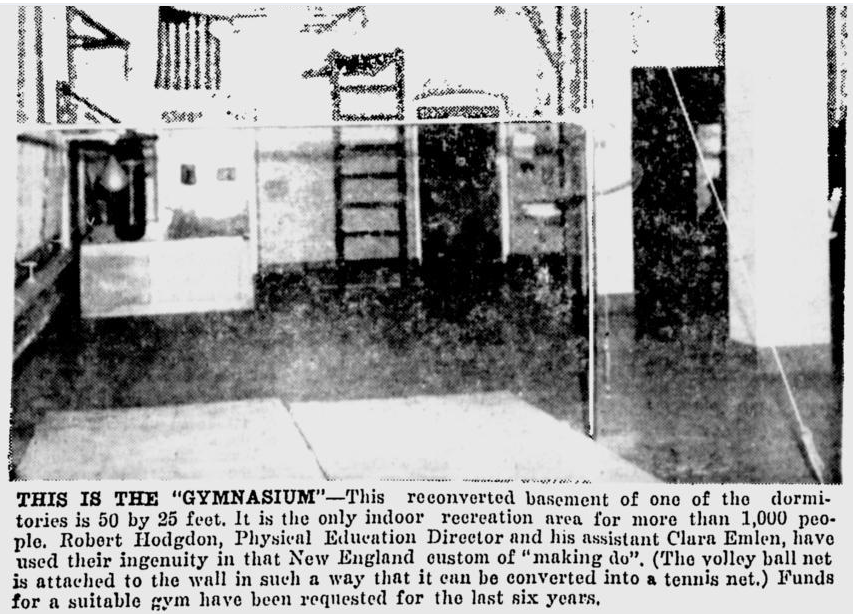
Staffing issues and high turnover was a constant refrain in the mid-1960’s in Maine’s institutional system. In 1965 it was determined that Maine’s turnover rate in this industry was twice the national average.
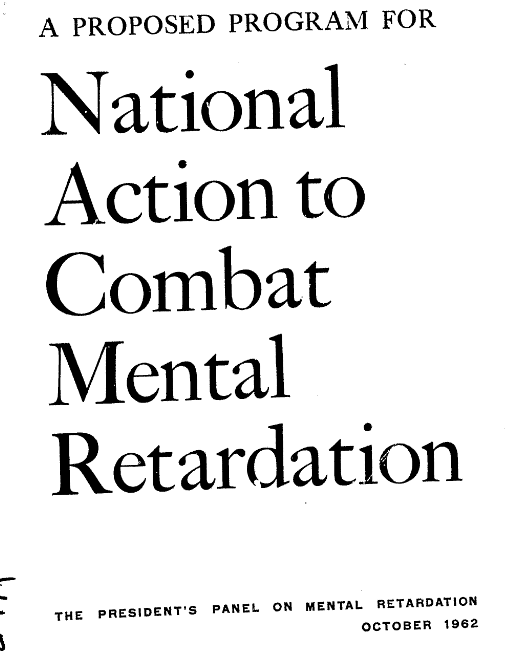
President John F. Kennedy had a personal connection to institutionalization and as President he would bring developmental disabilities into the public eye, and make the reenvisioning of services for people with developmental disabilities a cornerstone of his policies.
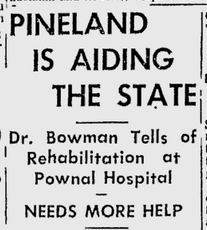
New ideas were cropping up - it was beginning to be understood that services provided in the community were both more humane and less expensive. But even as a new infirmary to “house 134 totally dependent patients” was dedicated, Governor Reed called for more, saying, “the needs of this and other state hospitals continue to grow".
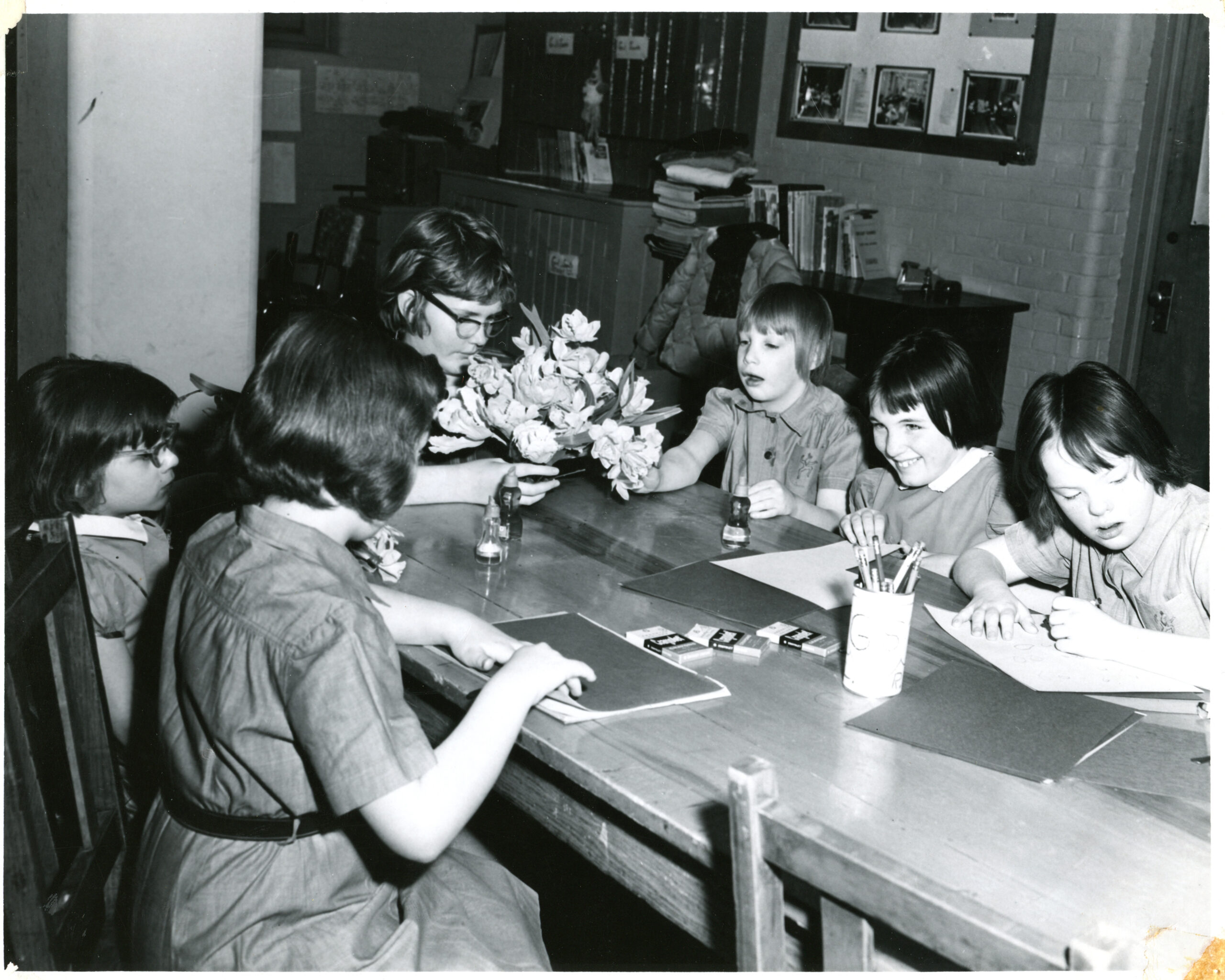
Superintendent Bowman himself began to express the view that many of those at Pineland could and should be returned to the community: “the mission and objective of Pineland is to return to the family, the community, and to outside civilization as many of the patients as possible, after they have received the maximum training and education we can provide here.”
In 1954, a group of parents formed a support and advocacy group: Pownal Parents and Friends. When the news of abuses came to light these parents were horrified, and began to organize towards investigating further and improving conditions for their children and family members living in Pownal. These groups and others like it would form the basis of the community care system in Maine.
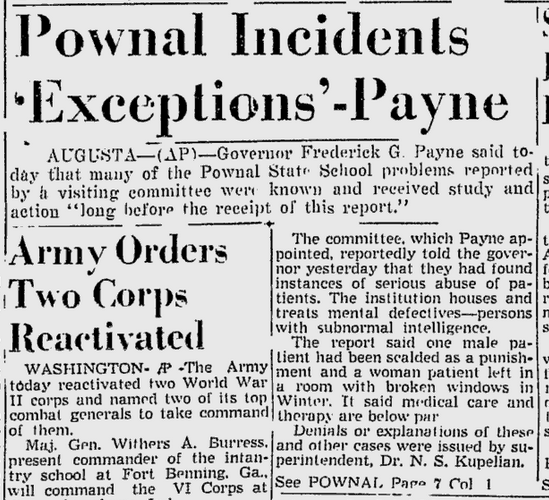
A Visiting Committee in 1951 cited cruel and abusive treatment, including excessive use of straightjackets, euphemistically known as "camisoles," and physical punishments. Superintendent Peter Bowman reported that some patients had been "scalded, beaten, and sexually abused in the recent past." But, Bowman stressed, most employees were caring and tried to do the best for residents – but were hampered by inadequate facilities, and staff shortages.
